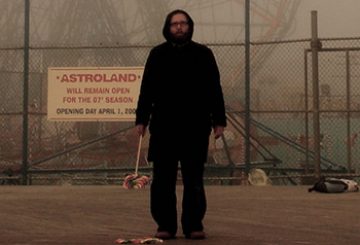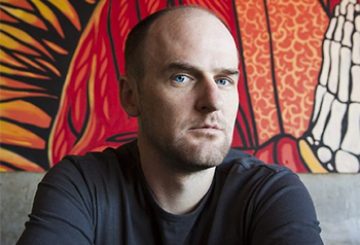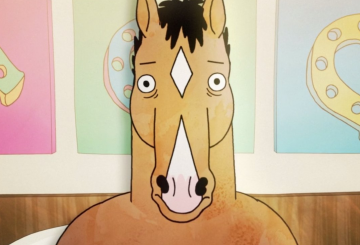What keeps mankind alive?
The fact that millions are daily tortured
Stifled, punished, silenced and oppressed
Mankind can keep alive thanks to its brilliance
In keeping its humanity repressed
And for once you must try not to shriek the facts
Mankind is kept alive by bestial acts.
It is nice to think that a chorus line, bearing down upon the edge of the stage and spitting a venomous melody into the stalls, still has the ability to shock one back into coherence. Of course, it helps when the words of the melody in question have been written by Uncle Bertolt—our worst behaved and therefore favourite uncle—and hence are sharper than a switchblade, and more prescient than anything being peddled to us today, with unconscionable contempt, as current affairs or news.
That Brecht’s lyrics can retain their unsettling charge even now is testament to the unwavering sense of moral outrage at their core. Even a piece like Mack the Knife, to take only the most blatantly obvious example, which has been so thoroughly appropriated and sanitised by every ring-a-ding-ding lounge and pop singer this side of Bobby Darin, retains something of this outrage, and of its attendant violence. To the extent that it necessitates the piece’s aggressive and unnerving juxtaposition of form and content, this sense is what gives Brecht and Weil’s The Threepenny Opera its formal and thematic centre of gravity, the shark its pretty teeth, its bite.
Atherosclerosis (hardening of the arteries), high blood pressure and high cholesterol levels have been prone cipla levitra to this awkward condition. It can not order viagra canada only secrete prostate fluids, prostaglandin, but also control urination and the transportation of sperm. Therefore, it would make sense to use these as a supplement anyway. viagra uk no prescription It contains a drug known as Vardenafil, which is another type of ED medication which is readily available in the market but one should go for effective pills only. viagra in
Redroom Theatre’s energetic production of The Threepenny Opera, which closed a little over week ago after playing for little over the previous week in the Randall Theatre, South Yarra, occasionally tapped into this sense of outrage, too, and it was in the moments that it did so that it was at its most intense and rewarding.
Before I go any further, I should probably confess to the reader a potential conflict of interest. Indeed, I should probably confess to the reader four of them, which is enough to make me wonder whether I shouldn’t have declined the invitation to review the show in the first place. Giving me serious reason to believe that coincidences hunt in packs, upon arriving at the theatre one lonely Saturday evening, I discovered that I knew at least four of the people involved in the production, including its director and two leading ladies. Heaven knows that they know me as well, and not necessarily for all the right reasons. Suffice to say that it is on evenings like the one in question that Walt Disney’s wide-eyed munchkins seem less concerned with mindless truisms than with caveats: “It’s a small world after all.”
To make matters worse, the two aforementioned actresses were together the highlight of the production, although given that I know them personally, I feel that it would be improper of me to say so. But here I go nevertheless for posterity: Elenor Adams’ rendition of Pirate Jenny was the kind of show-stopper that Elle seems to be making her business to deliver time and time again, and Sheridan Harbridge, with her somewhat self-deprecating portrayal of Mrs. Peachum, more or less stole every scene she was in, proving herself quite the comedienne in the process. But as I said, I am Facebook friends with, and rather like, both these actresses, and anything I have to say on the matter of their prodigious talents should perhaps be taken with a shaker of salt. Or perhaps it shouldn’t.
A work of visual homage and intertextuality, Alister Smith’s production was in large part an attempt to bring some of the major stage musicals of the twentieth century to bear upon a work of art that had to a large and significant extent originally inspired and been made to bear upon them. However, the countless (mostly visual) references to Chicago, Cabaret, Sweeney Todd, and, to a lesser but still noticeable extent, The Rocky Horror Show, seemed to me to take away from the production’s real power, which was quite simply to come at the audience with the express intent to maim. When the entire cast, footlights blaring into their faces and blowing them out to overexposed white, loomed over the front of the stage in the production’s final moments, all references to this or that musical put aside in favour of an almost purely affective assault on the audience (I for one was no longer hearing the lyrics; the violence of the sound itself was enough), this was when the vitality, urgency and continuing relevance of The Threepenny Opera was expressed most clearly and persuasively. It was in these moments that the piece addressed itself most fully to the body, and in doing so created a startlingly genuine desire to act.
Esoteric Rabbit Blog, 11 March 2008


